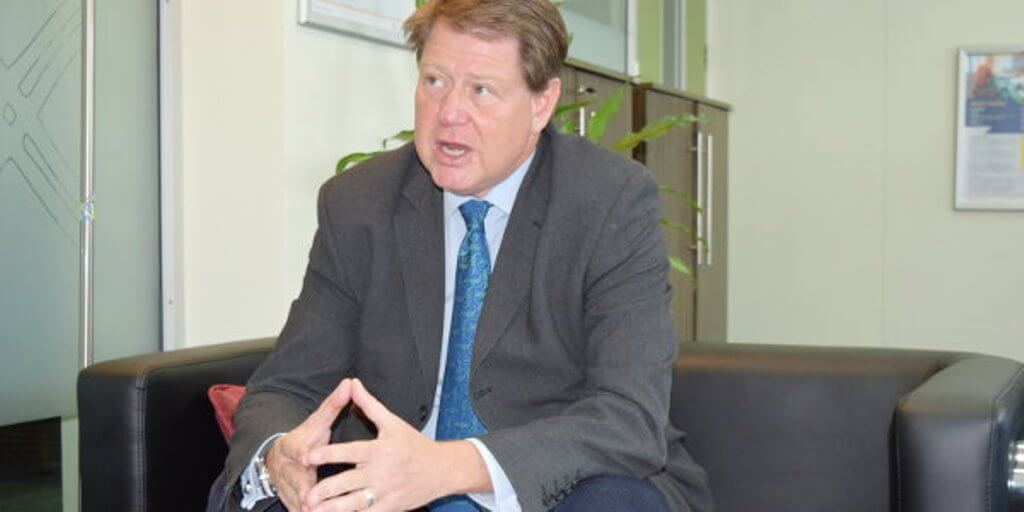
Our Projects are
Transforming African Trade
Quick Contacts
2nd Floor, Fidelity Insurance Centre Waiyaki Way, Westlands

TRADE Mark East Africa (TMA) has said that the East African region must focus on recovery, building resilience for job creation after the Covid-19 pandemic.
“The disease has proved to be daunting, complex and universal. It is not just a public health matter but also affects progress in the fight against poverty, due to its direct impact on jobs and economic performance,” TMA Chief Executive Officer has said..
Mr Frank Matsaert said people are living in times of great uncertainty, fuelled by the onset of Covid-19.
“Despite this, we have maintained our focus on supporting trade and building prosperity, creating jobs, and reducing poverty in Eastern Africa,” he said.
He said Covid-19 has catalyzed rethinking of global supply chains, shaken traditional patterns of partnerships and stimulated unanticipated innovation.
“It has magnified the importance of trade as a driver for development and building resilient economies,” he said.
Mr Matsaert said it was noteworthy that projected economic growth has more than halved in many countries, particularly in East Africa.
Thus, TMA has responded by creating a Covid-19 mitigation programme that leveraged their 10 years of experience, in addition to accelerate core programming with higher levels of innovation and forged new partnerships to address challenges to eastern Africa’s recovery.
In 2019/2020, TMA begun with an overview of the innovative Safe Trade Emergency Facility (Safe Trade) that it developed and rolled out when Covid-19 first hit East Africa.
That was rolled out with the support of its development partners in the European Union, Finland, Canada, Denmark, the Netherlands and the United Kingdom, he said.
The sudden onset of Covid-19, he explained, curtailed trade due to lockdowns and closure of borders in some countries to avoid the spread of the pandemic.
Safe Trade sought to support the continued flow of essential commodities such as food and medicines through borders and it has been powered by the commitment of governments to keep borders operating and to enhance efficiency of the transport corridors from ports to land borders, thus ensuring that land-linked countries maximize the potential of international trade.
Safe Trade continues to play a critical role in coordinating responses to Covid-19 in partnership with the region’s governments and the private sector, with the objective of keeping trade moving, thus protecting jobs and livelihoods.
“We have highlighted and continue putting focus on our progress on two critical areas including reduced barriers to trade and improved business competitiveness, which are designed to build resilience of regional economies,” he said.
The reduced barriers to trade component have accelerated digitalization to build smarter physical infrastructure, systems and processes that will spur regional competitiveness to ensure long-term economic recovery. That is in addition to supporting multi-modal transport systems across eastern Africa.
TMA work on improved business competitiveness has remained responsive to the needs of private and public stakeholders by supporting policy reforms, uptake of innovative business solutions, and targeted programming to 50,000 more women traders at 20 more borders across eastern Africa.
“We have supported Private Public Partnership Dialogues that supported trade negotiations between the East African countries and other parts of the world, leading to mutually beneficial trade agreements,” Mr Matsaert said.
The Private Public Partnership Dialogues approach provided great lessons on the possibilities that advocacy presents as Africa Continental Free Trade Area (AfCFTA) operationalisation materializes.
It also supported first, middle, and last mile supply chains, ensured private sector access to market information, and supported development of 15 digital portals for trade in government agencies. These portals will simplify and reduce export and import transaction costs.
Millions of people in Eastern Africa depend on trade and TMA has demonstrated efforts put towards scaling up multi-sectoral trade interventions by TMA and its more than 50 public and private sector partners to support building resilient economies that have the capacity to create and increase quality jobs and reduce poverty for all.
TMA has remained resilient in a highly dynamic environment and continued to focus on achieving results for millions of citizens across eastern Africa.
Read original article
Disclaimer: The views and opinions expressed in this article are those of the authors and do not necessarily reflect the official policy or position of TradeMark Africa.